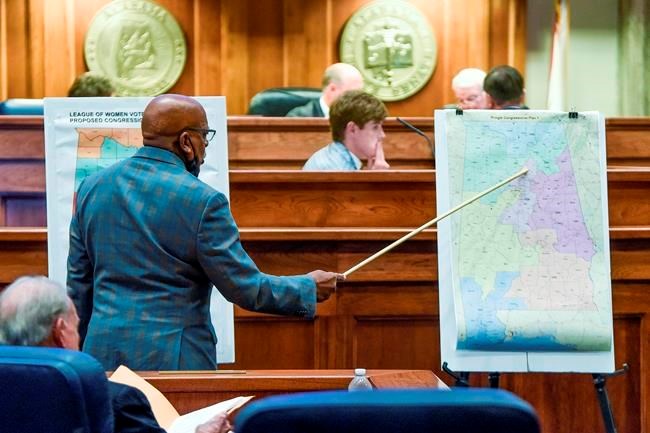WASHINGTON (AP) — The Supreme Court on Monday put on hold a lower court ruling that Alabama must draw new congressional districts before the 2022 elections, boosting Republican chances to hold six of the state’s seven seats in the House of Representatives.
The court’s action, by a 5-4 vote, means the upcoming elections will be conducted under a map drawn by Alabama’s Republican-controlled legislature that contains one majority-Black district, represented by a Black Democrat, in a state in which more than a quarter of the population is Black.
A three-judge lower court, including two judges appointed by former President Donald Trump, had ruled that the state had likely violated the federal Voting Rights Act by diluting the political power of Black voters by not creating a second district in which they made up a majority, or close to it.
Justices Brett Kavanaugh and Samuel Alito, part of the conservative majority, said a lower court acted too close to the 2022 election cycle.
Chief Justice John Roberts joined his three more liberal colleagues in dissent.
Lawmakers redrew the state’s congressional districts following the results of the 2020 census. Several groups of voters sued, arguing that the new maps diluted the voting power of Black residents in violation of the Constitution and the 1965 Voting Rights Act.
In a unanimous ruling in late January, the three judges said that the groups were likely to succeed in showing that the state had violated the Voting Rights Act. As a result, the panel ordered lawmakers to redraw the districts so Black voters would be a majority, or close to it, in two districts, not one. The ruling ran more than 200 pages.
The panel wrote that “we do not regard the question ... as a close one.”
Alabama asked the Supreme Court to put the ruling on hold while it appeals and the justices agreed. The state argued that it drew the new map guided by race-neutral principles and that the new map is similar to past maps.
More than a dozen mostly Republican-led states had filed a brief urging the justices to side with Alabama and allow it to use the maps it originally drew.
Mark Sherman And Jessica Gresko, The Associated Press



